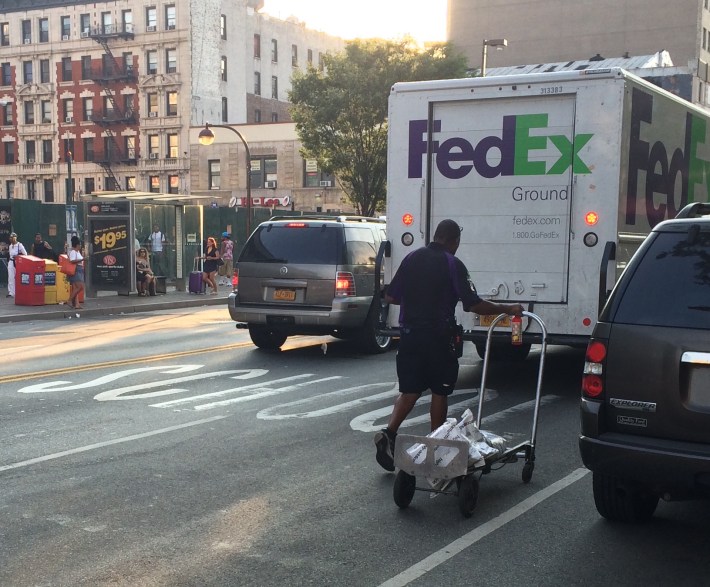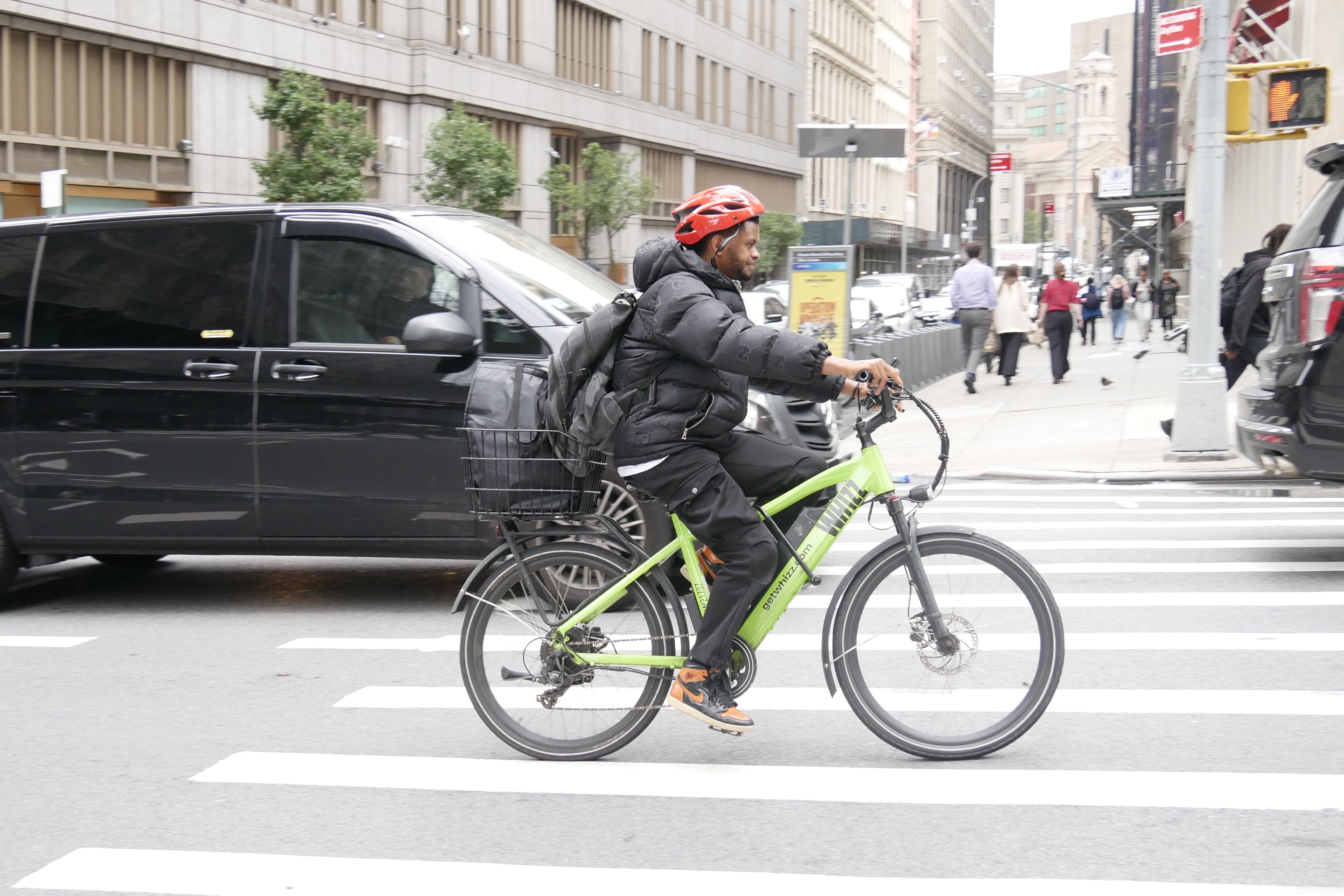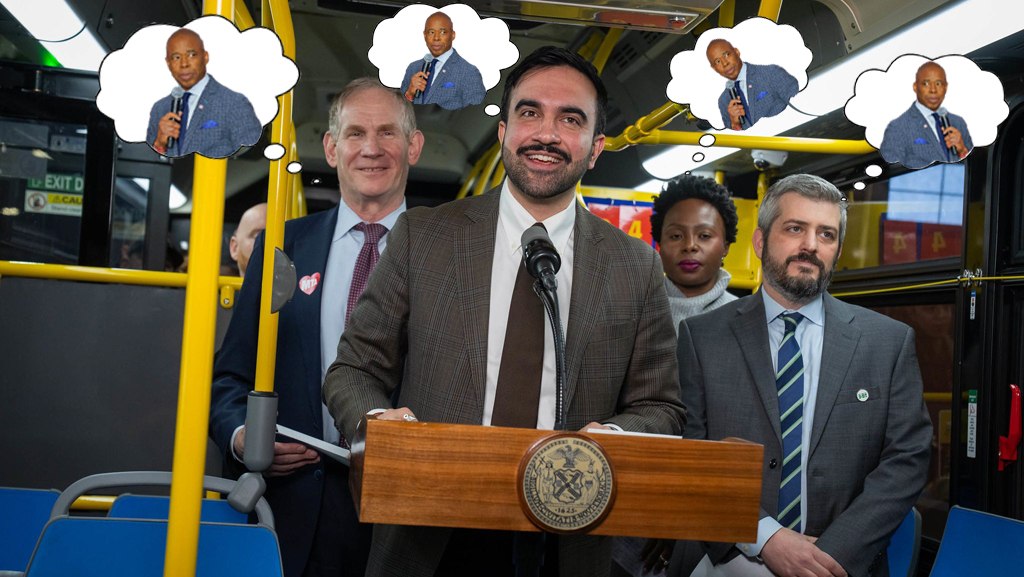When the city zeroes out the cost of undisputed tickets for delivery companies as part of a special program to reduce the cost of parking violations, it's also giving them a pass on a fee required by the state. That surcharge funds anti-drunk driving programs, among other initiatives, and advocates say the city and state could be missing out on tens of millions of dollars each year.

The special parking ticket programs in question, known as the Stipulated Fine and Commercial Abatement programs, have given companies that sign up an automatic discount on the cost of parking violations since first launching in 2004.
“We’ve taken issue with the stipulated fine program before," said TA Executive Director Paul Steely White, "[for] essentially giving large freight haulers or delivery companies incentives to break parking laws."
Most parking tickets are discounted under the program. Up to 30 violations, including double parking, have had their fines reduced to $0, according to data collected by parking watchdog Glen Bolofsky of ParkingTicket.com.
In a letter sent to Mayor Bill de Blasio today [PDF], TA questioned whether the city is collecting the $15 fee for tickets that have been reduced to $0. State law requires the surcharge in addition to any other fine that may be levied.
“We are in full compliance with the law," said Department of Finance spokesperson Sonia Alleyne. "The $15 surcharge is collected on EVERY summons or fine that is paid -- even the abated ones. It’s automatically included."
I asked if the city collects the $15 fee on tickets that have been reduced to $0. "No," Alleyne replied.
Once collected by the city, the $15 surcharge is split between the city and the state. At the state level, it is administered through the Justice Court Fund, which spends it on "legal services for indigent defendants, crime victims’ services, and driving while intoxicated (DWI) education programs," according to a 2010 report by the state comptroller [PDF].
In its letter, TA urges the city to use its portion of the surcharge revenue on speed enforcement and other Vision Zero initiatives, such as driver education and crackdowns on failure to yield to pedestrians and other violations.
Bolofsky estimates that three million of the city's approximately 10 million annual traffic tickets go through the Stipulated Fine or Commercial Abatement programs. That means up to $45 million in uncollected surcharges each year, though the number is likely lower since not all violations are reduced to $0 under the program.
"It does appear that in their rush to give discounts to large carriers, that they have potentially been missing out on tens of millions of dollars in revenue for various life-saving programs," White said. "It’s another reason why they should end the preferential treatment of pervasive lawbreakers."





